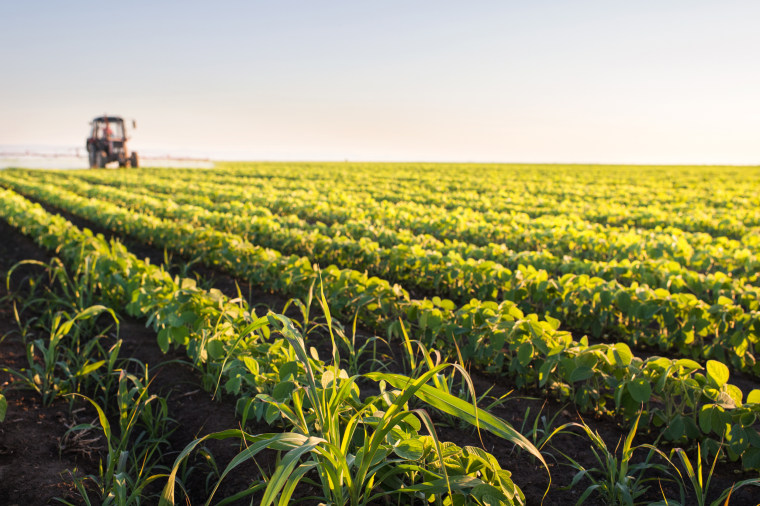With the world’s population projected to reach almost 10 billion by 2050, experts are looking for ways to make sure everyone will have enough to eat while promoting farming practices and dietary habits that will do a better job of protecting human health and that of the planet.
“We are not providing most people a healthy diet, our agricultural systems are degrading the natural resources needed for food production, and we will add more than 2 billion more people to feed,” Walter Willett, a professor of epidemiology and nutrition at the Harvard T.H. Chan School of Public Health, told NBC News MACH in an email.
But if Willett sounds bleak, he’s actually rather bullish on the prospect of implementing sustainable agricultural practices and dietary habits. Not that the transition will be easy: “Major changes in the foods we eat, the way we produce foods and the amount of food waste are needed to be able to pass on to our children and grandchildren a viable planet and future,” he said.
Those changes were the focus of a panel discussion held Friday on the school’s campus in Boston.
The one-hour event, entitled "Feeding 10 Billion By 2050: Creating a Sustainable and Healthy Food Future," considered a recent report from the EAT-Lancet Commission prepared by 37 scientists from 16 countries. Willett was one of the co-authors of the report.
The scientists outlined a series of steps aimed at ensuring a sustainable food supply for 2050 and beyond. In addition to transitioning to a mostly plant-based diet and curbing food waste, the report recommended the adoption of environmentally friendly food production techniques, among other strategies.
Willett participated in the panel discussion, along with Gina McCarthy, a professor in the department of environmental health at the Chan School and a former head of the federal Environmental Protection Agency; David Bennell, manager of food, land and water, and member relations at the World Business Council for Sustainable Development; and Ana Sortun, a James Beard Award-winning chef and the owner of Oleana, a restaurant in Cambridge, Massachusetts.
The panel was moderated by David Freeman, editorial director of NBC News MACH. It’s one in a series of panels moderated by Freeman, which have included “Gene Editing: Promises and Challenges” and “Self-Driving Cars: Pros and Cons for the Public Health.”
Want more stories about the environment?
- Underground eco-farm flourishes in London WWII bunker
- Global warming will cause the world's oceans to change color. Here's why.
- Why solar farms of the future may float on water
SIGN UP FOR THE MACH NEWSLETTER AND FOLLOW NBC NEWS MACH ON TWITTER, FACEBOOK, AND INSTAGRAM.
